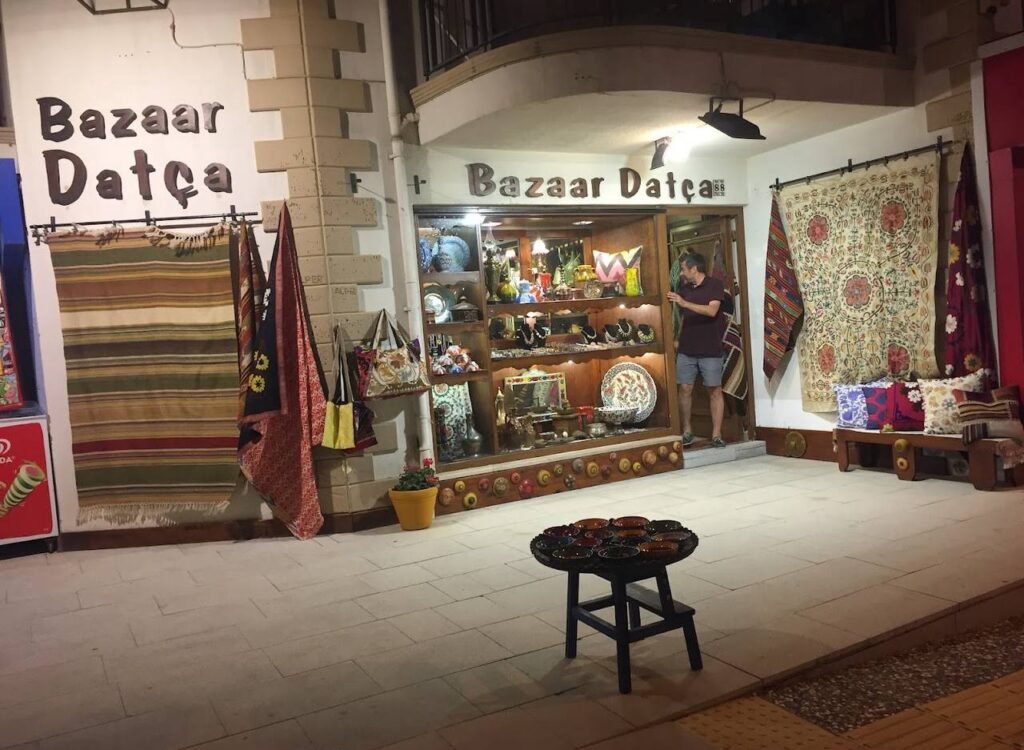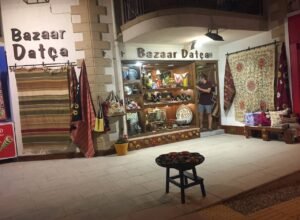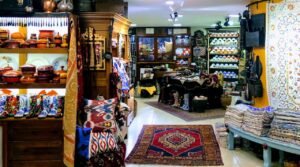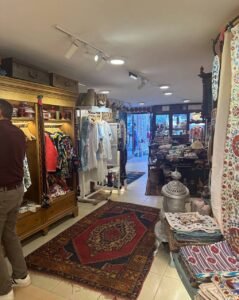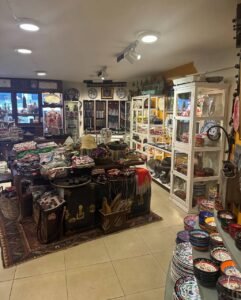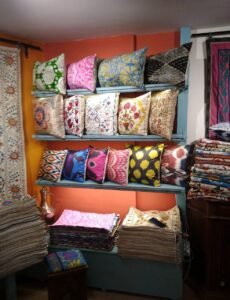Description
Discover the Charm of Datça Bazaar: A Hidden Gem in Muğla, Turkey
Nestled on the picturesque Datça Peninsula, where the Aegean and Mediterranean seas meet, lies one of Turkey’s most enchanting open-air markets—Datça Bazaar. Located in the province of Muğla, this lively and colorful bazaar is a must-visit destination for travelers looking to experience the authentic spirit of local Turkish life. Far from the glitz of mass tourism, Datça Bazaar offers an immersive experience into the heart of local culture, cuisine, and craftsmanship.
A Bazaar With Soul
Datça Bazaar is not just a marketplace—it's a vibrant meeting point where history, culture, and community converge. Every Saturday, the town center transforms into a bustling scene of stalls shaded by colorful awnings, filled with everything from handcrafted souvenirs and local textiles to organic produce and fresh seafood.
The bazaar serves not only as a trading hub but as a social gathering point. Locals greet each other warmly as they shop for their weekly essentials, and tourists are welcomed with friendly smiles and offers of Turkish tea. The atmosphere is lively yet relaxed, with the sounds of traditional Turkish music blending into the background chatter and laughter.
A Feast for the Senses
One of the most delightful aspects of Datça Bazaar is the sensory experience it offers. The air is thick with the scent of dried herbs, sun-ripened tomatoes, and freshly baked gözleme—a traditional Turkish flatbread stuffed with spinach, cheese, or potatoes. Olive oil vendors proudly offer samples of their golden, fruity oils, pressed from the peninsula’s abundant olive groves. Beekeepers sell jars of amber-colored pine honey, unique to this region of Turkey, with a flavor profile you won’t find anywhere else.
The produce section is especially vibrant. Depending on the season, visitors will find figs, apricots, pomegranates, and citrus fruits, all grown in the fertile local soil. The sellers are usually the very farmers who cultivated the goods, and many are happy to share stories about their crops or offer a taste before you buy.
Handicrafts and Artisan Goods
Beyond the food stalls, Datça Bazaar showcases an impressive range of local handicrafts. Look out for intricately woven kilims (Turkish rugs), handmade ceramics, and jewelry crafted from semi-precious stones found in the region. The area is also known for its production of lavender and olive oil-based soaps, perfect as gifts or souvenirs.
Local artisans take pride in their work, and many are happy to demonstrate their techniques or customize pieces upon request. These crafts make for memorable keepsakes, each carrying a piece of Datça’s soul.
A Cultural Time Capsule
What makes Datça Bazaar particularly special is its authenticity. Unlike the more commercialized bazaars in Istanbul or Antalya, Datça retains its local character. It hasn’t been overrun by souvenir shops or global chains. This allows visitors to truly experience a slice of traditional Turkish life.
Walking through the bazaar, you’ll notice older women in headscarves selling handmade lace or herbs collected from the nearby mountains, and men gathered around tea houses playing backgammon. There’s a timelessness to it all, a rhythm of life that has remained largely unchanged for decades.
Eco-Friendly and Locally-Sourced
Datça is known for its environmentally conscious residents, and this ethos is reflected in the bazaar. Many of the products are organic, grown without pesticides or artificial fertilizers. There’s also a focus on reducing plastic waste, with sellers encouraging the use of cloth bags and reusable containers.
Sustainability isn’t just a trend here—it’s a way of life. This aligns perfectly with Datça’s overall appeal: a destination for travelers who value authenticity, slow travel, and connection to nature.
Insider Tips for Visiting
-
Timing: The bazaar is held every Saturday, from early morning until late afternoon. Arrive before noon to get the best selection, especially if you're after fresh produce or baked goods.
-
Cash is King: While some stalls may accept credit cards, most transactions are done in cash. Turkish Lira (TRY) is preferred, and it's best to carry small denominations.
-
Bargain Respectfully: Haggling is part of the fun, but always do so with politeness. A smile and a respectful tone go a long way.
-
Taste Before You Buy: Vendors often offer samples, especially for cheeses, olives, and dried fruits. Don’t hesitate to try—it's encouraged.
-
Bring Your Own Bag: Reusable bags are appreciated and help keep waste to a minimum.
Beyond the Bazaar
While the bazaar is a major highlight, don’t miss the opportunity to explore the rest of Datça. The town itself is charming, with narrow cobblestone streets, whitewashed houses, and scenic harbor views. The nearby Old Datça (Eski Datça) is a beautifully preserved village that offers a glimpse into the peninsula’s past, complete with stone houses, art galleries, and quaint cafes.
The region is also home to several stunning beaches and historical sites, such as the ancient city of Knidos, located at the tip of the peninsula. After a morning of shopping at the bazaar, a relaxing afternoon at the beach or a cultural excursion completes the perfect day.
Final Thoughts
Datça Bazaar is more than just a place to shop—it’s a celebration of local life, a sensory journey, and a cultural immersion rolled into one. Whether you’re a foodie, a history buff, a sustainability-minded traveler, or simply someone looking for an authentic Turkish experience, this bazaar has something special to offer.
In a world where so much travel has become commercialized, Datça Bazaar stands as a refreshing reminder of what makes a place truly memorable: its people, its traditions, and its soul. So, if you find yourself in Muğla, be sure to carve out a Saturday for a stroll through this unforgettable market. You’ll leave not only with bags full of treasures but with stories and experiences that will stay with you long after your journey ends.
Location
-
İskele, Atatürk Cd. No:88, 48900 Datça/Muğla
